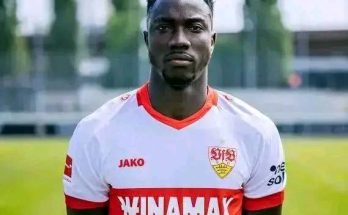Former Rangers GM Cracks Hilarious Joke About K’Andre Miller’s \$60 Million Deal With Hurricanes.
When news broke that K’Andre Miller had signed a jaw-dropping \$60 million contract with the Carolina Hurricanes, the NHL world collectively paused. The towering defenseman, long considered a core piece of the New York Rangers’ future, had unexpectedly taken his talents south, opting for a fresh chapter in Raleigh rather than continuing with the franchise that drafted and developed him. As fans and analysts absorbed the shock of the move, one voice stood out among the reactions—not just for what was said, but how it was said. Former Rangers General Manager Jeff Gorton, who had played a pivotal role in Miller’s early NHL career, offered a response that instantly went viral for its humor, timing, and candid insight into the unpredictable business of hockey.
Gorton, now with the Montreal Canadiens in an executive role, was asked during a lighthearted segment of a sports talk show what he thought about Miller’s blockbuster deal. Without missing a beat, he smirked and said, “Sixty million? Maybe I should’ve played defense instead of managing them.” The studio erupted in laughter, and so did fans across social media platforms. It wasn’t just the joke itself—it was the way Gorton delivered it, the knowing glint in his eye, the ease with which he turned a major free agency headline into a moment of levity that fans could rally around.
While Gorton’s quip was clearly made in jest, it also underscored a deeper truth: the NHL landscape is changing. Contracts of this size for young defensemen were once the domain of generational talents only. But Miller’s progression has been significant enough to justify, at least in the eyes of the Hurricanes, a major long-term financial commitment. Standing 6-foot-5 and skating like a forward, Miller brings a rare blend of physicality, puck-moving ability, and versatility that teams covet in their blue line cornerstones. Carolina didn’t just pay for what he’s done—they paid for what they believe he can become.
For Gorton, seeing Miller cash in with another team must be bittersweet. As the architect of the Rangers’ rebuild during the late 2010s, Gorton was responsible for drafting Miller 22nd overall in the 2018 NHL Draft. Back then, Miller was a raw prospect—an athletic marvel who had only recently transitioned to playing defense full-time. But Gorton and his scouting team saw the potential. They believed Miller had the tools to be molded into something special. And they weren’t wrong.
By the time Miller broke into the NHL during the 2020-21 season, he was already turning heads with his poise, reach, and ability to handle top-pair minutes against elite competition. In New York, he developed alongside Adam Fox, forming a dynamic pairing that gave the Rangers a foundational duo for the foreseeable future—or so it seemed. But as salary cap pressures mounted and other organizational priorities took precedence, keeping Miller in blue became more difficult than anticipated.
Miller’s departure is not just a story of one player’s rise, but a reflection of how difficult it is to maintain a contending roster in today’s NHL. The Rangers, like many teams, have had to make tough choices with their core pieces. They’ve committed substantial money to the likes of Mika Zibanejad, Artemi Panarin, and Igor Shesterkin. Locking in Miller for eight years at an annual average value of \$7.5 million might have been too steep a price given their cap structure. Still, that doesn’t make it easier for the fans—or for former front-office members like Gorton who had such a hand in building the team’s current foundation.
In his current role with the Canadiens, Gorton remains one of the league’s most respected hockey minds. His ability to evaluate talent, make strategic trades, and foster development pipelines has earned him praise even outside New York. But there’s no doubt that moments like Miller’s contract reveal bring about a sense of nostalgia and “what could have been.” It’s a reminder of how quickly the landscape can change, and how unpredictable the journey of player development truly is.
What makes Gorton’s comment especially endearing is that it breaks from the typically stoic, PR-driven commentary fans have come to expect from former executives. His self-deprecating humor didn’t just entertain—it humanized a process that often feels clinical. It’s not easy for a GM to see a player he drafted thrive elsewhere. And yet, instead of bitterness or defensiveness, Gorton met the moment with laughter. In doing so, he reminded everyone that while hockey is a business, it’s also a game. And games are supposed to be fun.
Miller’s contract with the Hurricanes signifies a massive vote of confidence. Carolina has long been a team that prides itself on analytics, smart cap management, and sustainable competitiveness. Their decision to make such a long-term bet on Miller signals not only faith in his skill set but also in his character. It’s not often that a franchise will hand a player with fewer than 300 NHL games a contract that could reshape their cap structure for nearly a decade. But Miller, with his upward trajectory and relentless work ethic, seems poised to meet the moment.
As for the Rangers, they now face a pivotal question: how do they fill the void left by Miller’s exit? Young prospects in the pipeline will be tested, and veterans will be leaned upon more heavily. The blue line, once considered a position of strength, now enters a phase of uncertainty. Perhaps more trades are on the horizon. Perhaps someone unexpected will rise to the occasion. But what’s clear is that Miller’s presence will be missed—not just for his on-ice contributions, but for the energy and identity he brought to the team.
Fans of the Rangers took to social media in the wake of Gorton’s comment, with reactions ranging from laughter to wistful longing. Many thanked Gorton for his original decision to bring Miller to New York, even if it didn’t culminate in a lifelong Rangers career. Others lamented the financial constraints that made keeping him impossible. And a few simply shared clips of Gorton’s joke, grateful for the levity amid what felt like a gut punch to the fanbase.
Around the league, other GMs likely took notice of Gorton’s delivery too. In a business often dominated by guarded statements and calculated diplomacy, it’s refreshing to see someone speak with honesty and humor. It’s those moments—spontaneous, unscripted, real—that fans cling to. Because behind every contract, every trade, every waiver wire decision, there are people with histories, relationships, and yes, senses of humor.
Miller’s story is far from over. At just 24 years old, he enters the prime of his career with a massive contract, a new team, and a fresh set of expectations. If his development continues on its current path, the Hurricanes may have secured one of the great defensive bargains of the next decade. If not, they’ve still acquired a player with elite physical tools and a proven work ethic who can shape their defensive core for years to come.
For Jeff Gorton, the story is already part of his legacy—one more chapter in a long career filled with both calculated risks and brilliant successes. He won’t be the one guiding Miller’s future anymore, but he’ll always be tied to his beginnings. And whether his comment was made in passing or part of a larger message about today’s NHL market, it landed perfectly. Fans needed a laugh. And he gave them one.
The NHL is a league where players come and go, where cap space often matters as much as skill, and where loyalty is sometimes the first casualty of financial reality. But it’s also a league filled with personalities—guys like Gorton, who aren’t afraid to crack a joke, even when it’s their own decisions coming back into the spotlight. And in moments like this, those personalities make all the difference.
So while the Hurricanes prepare for the next eight years with K’Andre Miller anchoring their back end, and the Rangers ponder their next move on defense, fans will remember that moment—a former GM, a studio filled with laughter, and a perfectly timed one-liner that reminded everyone why they love this sport in the first place.



